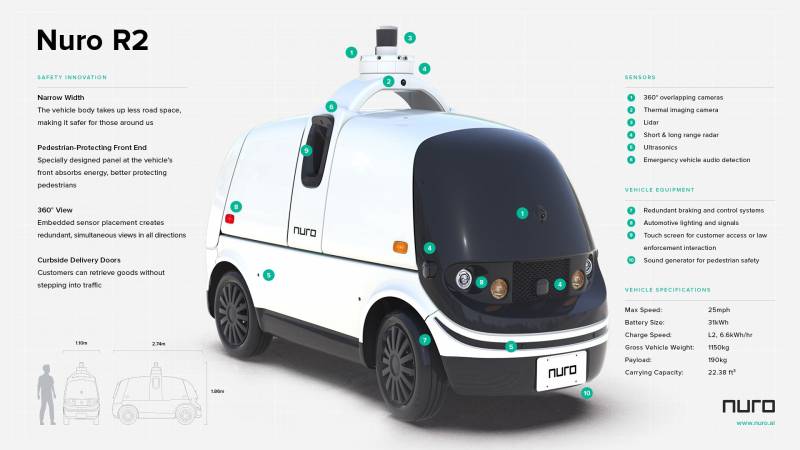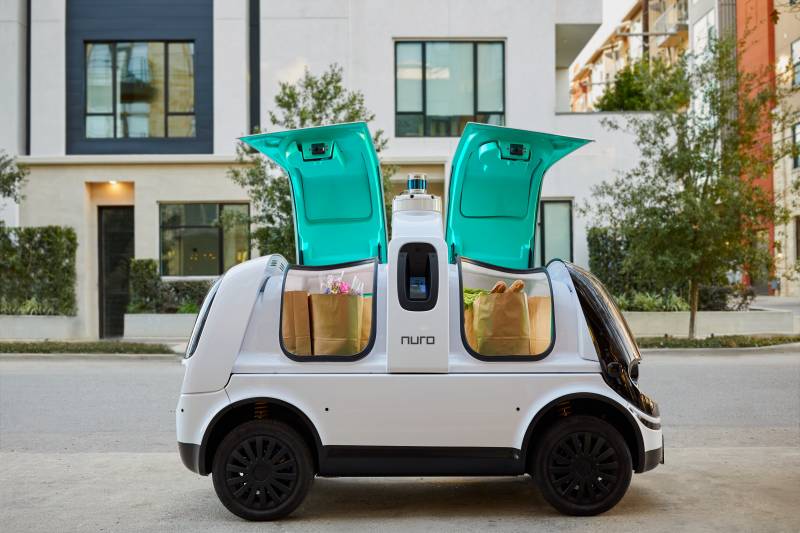The U.S. government’s highway safety agency has approved a Bay Area company’s request to exempt its self-driving delivery vehicle from federal regulations governing human-driven cars and trucks.
The approval for Mountain View-based Nuro marks the first time the National Highway Traffic Safety Administration has granted an exemption for an autonomous vehicle without some of the standard safety and control equipment required for conventional passenger vehicles.
Nuro’s autonomous electric vehicles, which have been likened to toasters on wheels, can carry about 420 pounds of groceries, pizza pies or what have you at a top speed of 25 mph. The “zero-passenger” robot cars, which have been used for grocery deliveries in Arizona and Texas, have no steering wheels, brake pedals, windshields or mirrors.
Instead, they rely on an array of sensors, including standard and thermal-vision cameras, radar and lidar, and computer navigation that allows the vehicle to travel through areas the company has already mapped. The firm has told NHTSA its automated driving system will be backed up by “experienced human operators who are extensively trained in the vehicle’s systems” who can assume control of the robot if necessary.
The NHTSA exemption was granted for Nuro’s second-generation vehicle, the R2. The company calls it “a socially responsible neighborhood vehicle that you can trust.”

In addition to all its advanced sensing hardware, navigational smarts and redundant braking and control systems, Nuro also touts what it calls the R2’s “pedestrian-protecting front end” — energy-absorbing “crumple zones” designed to reduce the severity of a collision impact.
In its NHTSA filings, Nuro has argued its front end would be significantly safer for a pedestrian collision victim than a conventional windshield, which have been found to be a leading factor in causing serious injuries.
Nuro says the fully loaded robot vehicle weighs 2,530 pounds. It’s 108 inches long, 43 inches wide and 73 inches high. If you’re looking for an existing vehicle comparison, the Smart ForTwo model comes close — the R2 is roughly the same weight, height and length as the diminutive commute car, but about 30 inches narrower. Nuro advertises that reduced width as an added safety factor in the vehicle’s interactions with pedestrians and cyclists.
Nuro announced in December it planned to deploy the R2 in Houston to launch a grocery delivery service with Walmart.
The company, teaming with Kroger, has operated similar services with its previous robot model, the R1, in both Houston and Scottsdale, Arizona. Last June, it partnered with Domino’s to test autonomous pizza deliveries in the Houston market.

